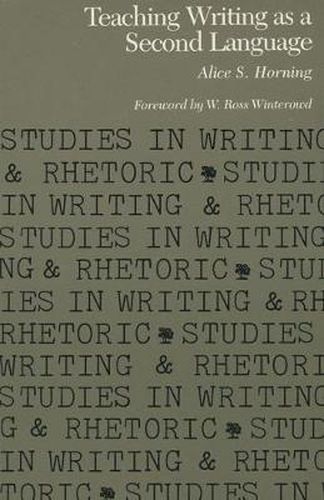Readings Newsletter
Become a Readings Member to make your shopping experience even easier.
Sign in or sign up for free!
You’re not far away from qualifying for FREE standard shipping within Australia
You’ve qualified for FREE standard shipping within Australia
The cart is loading…






Classrooms filled with glassy-eyed students provide an experiential base for Alice S. Horning’s new com prehensive theory about basic writers.
Horning explores the theory of writing acquisi tion in detail. Her examination of spoken and writ ten language and redundancy give a theoretical base to her argument that academic discourse is a sepa rate linguistic system characterized by particular psycholinguistic features. She proposes that basic writ ers learn to write as other learners master a second language because for them, academic written Eng lish is a whole new language.
She explores the many connections to be found in second language acquisition research to the teaching and learning of writing and gives special attention to the interlanguage hypothesis, pidginization theory, and the Monitor theory. She also addresses the role of affective factors (feelings, attitudes, emotions, and motivation) in the success or failure of writing students.
$9.00 standard shipping within Australia
FREE standard shipping within Australia for orders over $100.00
Express & International shipping calculated at checkout
Classrooms filled with glassy-eyed students provide an experiential base for Alice S. Horning’s new com prehensive theory about basic writers.
Horning explores the theory of writing acquisi tion in detail. Her examination of spoken and writ ten language and redundancy give a theoretical base to her argument that academic discourse is a sepa rate linguistic system characterized by particular psycholinguistic features. She proposes that basic writ ers learn to write as other learners master a second language because for them, academic written Eng lish is a whole new language.
She explores the many connections to be found in second language acquisition research to the teaching and learning of writing and gives special attention to the interlanguage hypothesis, pidginization theory, and the Monitor theory. She also addresses the role of affective factors (feelings, attitudes, emotions, and motivation) in the success or failure of writing students.